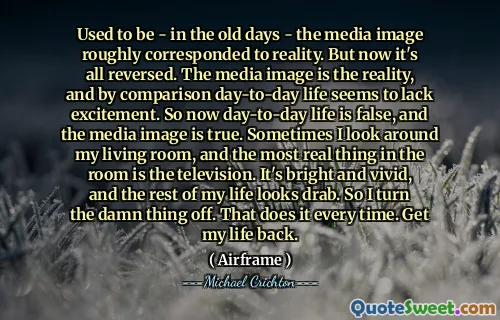
But now reporters came to the story with the lead fixed in their minds; they saw their job as proving what they already knew. They didn't want information so much as evidence of villainy. In this mode, they were openly skeptical of your point of view, since they assumed you were just being evasive. They proceeded from a presumption of universal guilt, in an atmosphere of muted hostility and suspicion.
In Michael Crichton's "Airframe," the narrative highlights the challenges faced by reporters who approach stories with preconceived notions. Instead of seeking the truth or gathering new information, these journalists are more focused on finding evidence that aligns with their biases. This leads to a situation where they are skeptical of any viewpoints that contradict their established beliefs, interpreting them as evasive rather than open to discussion.
This presumption creates an environment filled with hostility and suspicion, where the search for truth becomes secondary to proving guilt. Reporters operate under an assumption that everyone is guilty until proven innocent, which undermines the integrity of journalism and the complexities of the stories they pursue.











